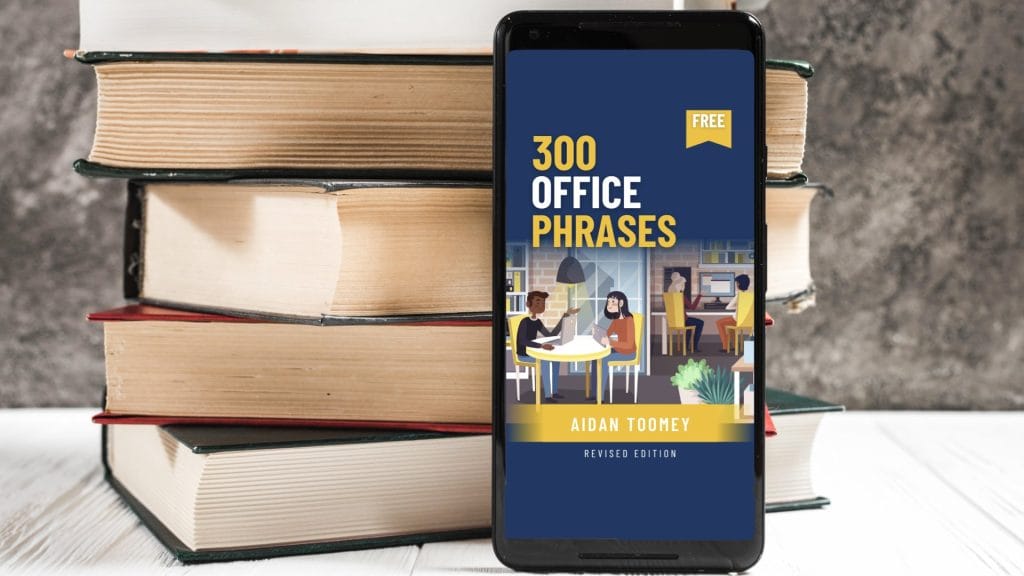
Do you know how to give feedback without offending, accept criticism gracefully, or apologise effectively in the workplace? These are essential skills for maintaining professionalism, building trust, and fostering positive relationships in any work environment.
In Part 1, we introduced the foundational principles of workplace etiquette, such as making a great first impression and fostering respect. Now, in Part 2, we’ll dive into the practical side of workplace communication, focusing on how to:
- Give constructive feedback that helps colleagues grow.
- Receive feedback with professionalism and gratitude.
- Say thank you in a way that strengthens relationships.
- Apologise sincerely to resolve issues and rebuild trust.
Don’t forget to check out Part 3, where we explore advanced workplace etiquette tips, including admitting mistakes, asking for help, and supporting colleagues.
Ready to refine your workplace communication skills? Let’s get started!
Watch the video, read the content, and complete the ACTIVITY towards the end of the lesson.
Don’t forget to like and follow us on YouTube and LinkedIn.
Scroll down to the end of the lesson to get your Ultimate 300 Business English Phrases for Communication in the Office ebook.
1) Etiquette in terms of GIVING FEEDBACK
Giving feedback shows you care about helping your colleague develop. Treat it as a thoughtful discussion rather than criticism.
Staying positive makes delivering feedback easier, so speak with care and focus on progress.
Example phrases:-
GIVING FEEDBACK when discussing a presentation.
‘”I wanted to provide some feedback because I know you want to improve your presentation skills. For next time, having more audience participation could make it more interactive.”
“Your enthusiasm when pitching concepts is great. One thing that could help even more is preparing and practicing a bit more beforehand.”
GIVING FEEDBACK when discussing a project.
“I wanted to provide some feedback about the team project we worked on last month. Overall, you did a great job staying organised and keeping everyone on schedule. One area that could be improved next time is clearer communication of task assignments and deadlines to make sure everyone is on the same page.”
GIVING FEEDBACK when discussing a report.
“Your report was very thorough. One area that could be stronger is including more data visualizations. I’d be happy to generate ideas to showcase the analytics.”
“I see you work hard on the project, and that’s great. To make your reports even better, try organizing them more clearly. I can help you with that.”
2) Etiquette in terms of RECEIVING FEEDBACK
Receiving feedback: Receiving feedback positively and professionally is crucial for growth and relationships. Listen without interrupting when colleagues provide feedback.
Ask clarifying questions if the message is unclear but avoid becoming defensive. Feedback presents insight to develop your skills; treat it as a thoughtful gift rather than criticism.
Example phrases:-
RECEIVING FEEDBACK when clarifying.
“Let me repeat what I heard to make sure I understand. You said the information was good, but the pace was too fast at times, and slides had too much text. Is that correct?”
” Let me repeat what I heard to make sure I understand. You said I did a good job explaining the benefits in general, but some of the specific features were confusing to the clients. Is that correct?”
RECEIVING FEEDBACK when showing appreciation.
“Thanks for taking the time to provide that feedback. I appreciate you wanting me to develop.”
“I value your input and I’m committed to using your feedback to enhance my performance.”
3) Etiquette in terms of SAYING THANK YOU
Saying thank you occurs when someone helps you after meetings or presentations and upon receiving gifts, favors, or feedback. Directly state your gratitude in a warm yet professional way.
Example phrases:-
SAYING THANK YOU when acknowledging help.
“Thanks for your help with the presentation slides. Your design work made them look great.”
“Thanks for covering my shift last Thursday when my daughter was sick; it really helped me out.”
SAYING THANK YOU when receiving a gift.
“Thank you both for the thoughtful birthday gift. Your generosity and the effort you put into selecting something meaningful truly made my day special.”
SAYING THANK YOU when acknowledging support.
“Thank you for your support. During the team meeting, your constructive feedback on our project was insightful and will certainly contribute to its success.”
4) Etiquette when APOLOGISING
Apologising sincerely is important for resolving issues. Say sorry directly when you make a mistake, miss a deadline, or let someone down.
Take ownership without excuses; don’t blame others and demonstrate you understand the impact of your mistake and will learn from it.
Example phrases:-
APOLOGISING when missing a deadline.
“I sincerely apologise for missing yesterday’s deadline. I will complete the report tonight, and it will not happen again.”
APOLOGISING following late attendance.
“I’m very sorry I was late for our meeting this morning. There was an accident on the motorway that delayed me. I will plan to leave earlier next time.”
APOLOGIES when making an error.
“My apologies for the billing error. I entered the wrong data. Let me rerun it correctly and get you a new invoice today.”
APOLOGIES after losing composure
“I’m sorry I lost my temper in our discussion yesterday. Your feedback was fair. I will learn to accept criticism with more maturity.”
Activity
Explore More Business English Resources
Looking for more Business English tips, courses, and free resources? Visit our LinkTree page to access everything in one place: https://linktr.ee/toomeybusinessenglish
Are You Ready to Excel at Workplace Etiquette?
Book a complimentary 15-minute consultation to discover how personalised coaching can help you master workplace etiquette, from effective communication and professional conduct to building stronger relationships in the office. Our tailored training has supported professionals from over 30 countries in enhancing their Business English and excelling in their careers.
Learn more at: https://toomeybusinessenglish.com/business-english-training/
FREE! THE ULTIMATE 300 BUSINESS ENGLISH PHRASES FOR COMMUNICATION IN THE OFFICE

